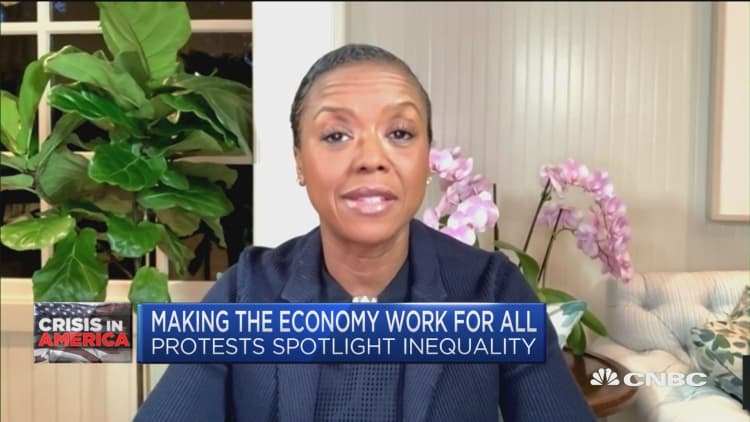This summer's widespread protests and the coronavirus pandemic, which disproportionately affected Black Americans, have pushed racial inequalities to the forefront of the national conversation. Investors are demanding companies pay closer attention and come up with tangible solutions to close the racial wealth gap.
McKinsey & Co. partner and ex-NFL player Jason Wright helps lead the diversity, equity and inclusion initiative, and the Black Economic Institute at the firm. He says the racial wealth gap constraints the U.S. economy by $1 trillion to $1.5 trillion and therefore investing in solutions is a no-brainer for boosting investment and consumption.
Currently, Blacks are twice as likely to be unemployed, about 30% more likely to be underemployed, and their median hourly wage is 75 cents on the dollar when compared with White counterparts, according to the Economic Policy Institute.

The McKinsey partner says that while existing programs that focus on women and diversity, sponsorship, unconscious bias training and mentorship have been positive, they are not making enough of an impact. He says bold and somewhat controversial initiatives are needed to make the necessary difference. According to Wright only two, albeit confidential, clients are pushing the envelope on the issue.
The companies "tied a senior leader's bonus and/or their performance evaluation to how well they brought through Black talent. And that was a combination of the numbers, how many Black folks came through and came in senior roles under their watch. And what Black folks said about their leadership," says Wright.
Black Americans are also disproportionately in roles likely to be affected by automation and machine learning, according to a study by McKinsey. The firm estimates that 53% of support roles will be automated, versus only 31% of directive roles. The study looked at roles that were 50% or more likely to be automated in the next decade to see where they best matched with roles that were less than 30% likely to be automated.
"Truck drivers' underlying skill set matches almost 90% with that of a warehouse supervisor. And especially in the context of Covid, where we actually know that Black people are more likely to be furloughed, have reduced hours. I think it's a great challenge for companies to say it's time to scale up and select your participants disproportionately from your minority talent pool, [and] take them through learning and development while there's capacity and slack in the system," Wright says.
Wright also recommends, when possible, companies assess employees based on skill set rather than credentials, encourage raw dialogue among White and Black colleagues, and investors and stakeholders to put pressure on their companies to address discrimination and inequalities in the workplace in a meaningful way.



